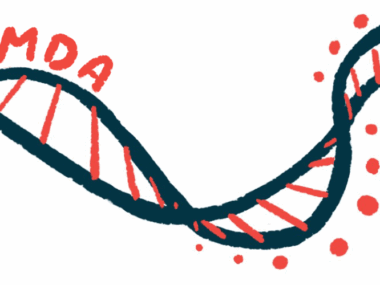Phase 1/2 update ‘encouraging’ for DMD gene therapy RGX-202
Data indicate RGX-202 increases microdystrophin in boys with DMD
Written by |

The experimental gene therapy RGX-202 has been found to be well tolerated at a high dose, with biomarker data indicating it is working as designed to increase production of the microdystrophin protein in boys with Duchenne muscular dystrophy (DMD).
That’s according to updated interim findings from the ongoing Phase 1/2 AFFINITY DUCHENNE clinical trial (NCT05693142), which is enrolling boys with DMD, ages 1-11, at sites in the U.S. Newly enrolled participants will receive RGX-202 at its higher dose.
Regenxbio to launch pivotal clinical trial by year’s end
The treatment’s developer, Regenxbio, expects to share additional efficacy data including strength and functional assessments at both evaluated dose levels later this year. It’s also set to launch by year’s end a pivotal clinical trial, one that would support regulatory applications for RGX-202’s approval.
“This data continues to build on the totality of evidence supporting the potential for RGX-202 to be a differentiated, best-in-class treatment for Duchenne,” Curran M. Simpson, president and CEO of Regenxbio, said in a company press release. “RGX-202 is well positioned to be the next potential gene therapy approved for Duchenne.”
DMD patients are lacking in dystrophin, a protein important for muscle health, caused by mutations in the DMD gene that encodes its production.
RGX-202 is a gene therapy designed to deliver a gene encoding a shorter-than-normal version of dystrophin, called microdystrophin, to muscle cells. It’s packaged into a viral carrier called an adeno-associated virus that helps it be taken up by cells when delivered via a single infusion into the bloodstream.
In contrast to other approved or experimental DMD gene therapies, RGX-202 is designed to produce a microdystrophin that’s more similar to naturally occurring dystrophin, according to Regenxbio. Specifically, it encodes a protein segment called the C-Terminal domain that’s known to be important for protecting muscles from damage.
In the AFFINITY DUCHENNE trial, two doses of the therapy, 100 trillion genome copies per kilogram of body weight (GC/kg) and 200 trillion GC/kg, were to be tested in boys ages 4-11 who were able to walk.
Interim three-month analyses presented last year, showed the lower dose was generally well tolerated in three treated patients. For two boys dosed at ages 4 and 10, microdystrophin increased to 38.8% and 11.1% of normal dystrophin levels after three months.
The recent update concerned all seven patients who have now completed three-month follow-up assessments, including four who have been been treated at the higher dose since the last update.
All 7 RGX-202-treated patients had meaningful increases in microdystrophin
RGX-202 has continued to be well tolerated with no serious adverse events, according to Regenxbio. Moreover, all seven patients have experienced meaningful increases in levels of microdystrophin after receiving the gene therapy.
For those treated at the high dose, one 5-year-old boy reached microdystrophin levels that were 77.2% of normal and an 8-year-old boy saw increases to 46.5%. Two other boys in the 8-11 age range had microdystrophin at 20.9% and 75.7% of normal levels.
The third patient treated at the lower dose, for whom three-month data were not available as of the last update, microdystrophin levels increased to 83.4% of normal. The boy was dosed when he was 6.
Regenxbio reports that all boys have experienced reductions in blood levels of creatine kinase, a marker of muscle damage.
The higher dose being tested is the one that’s expected to be used in the planned pivotal trial, so more boys ages 4-11 are being recruited for that dosing group, which Regenxbio anticipates will wrap up in the next few months. The trial has also been expanded to include an additional group of boys ages 1-3 who will receive the high dose.
Over the one-year observation period, data related to muscle strength and function are also being collected.
“I remain encouraged by the biomarker data from the AFFINITY DUCHENNE trial of RGX-202 and am eagerly anticipating the initial functional data from this program,” said Aravindhan Veerapandiyan, MD, study investigator from Arkansas Children’s Hospital. “This update is also encouraging for the Duchenne community, which is exploring various treatment options that could influence disease progression.”
Regenxbio also reported that its manufacturing center for RGX-202 has demonstrated the ability to produce large amounts of the gene therapy with consistent quality, which it believes makes the gene therapy well-positioned for eventual commercialization.







